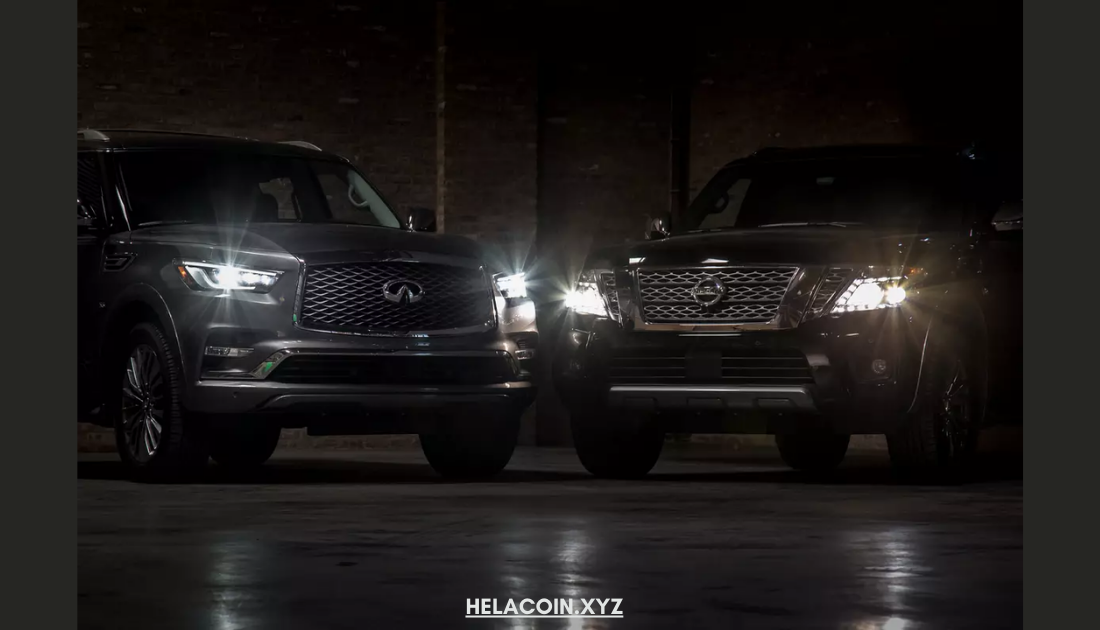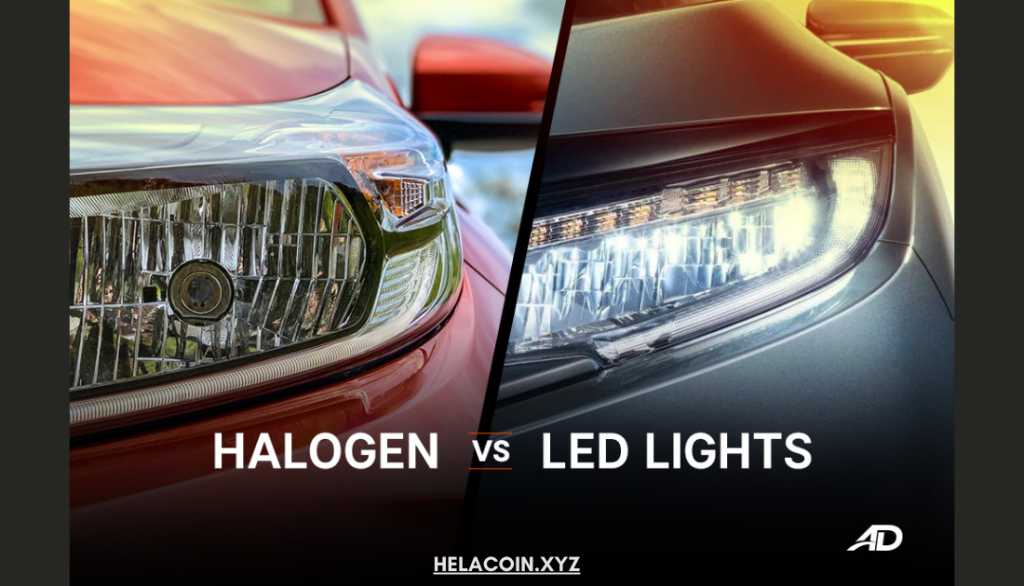Blog
LED vs. Halogen Car Lights: Which is the Better Choice for Your Vehicle?
Choosing the right type of car lights can make a significant difference in driving safety, visibility, and aesthetics. Two of the most popular options are LED (Light Emitting Diode) and halogen lights, each with its own set of advantages and drawbacks. While halogen lights have been the standard choice for decades, LEDs have gained popularity due to their energy efficiency and longevity. In this article, we’ll compare LED vs. halogen car lights to help you determine which option is the better choice for your vehicle.
What Are Halogen Car Lights?
Halogen lights are a type of incandescent light bulb that uses halogen gas to increase brightness and lifespan. They are similar in design to traditional household light bulbs, with a tungsten filament that heats up to produce light. Halogen bulbs are known for their affordability and ease of replacement, which is why they have been widely used in vehicles for years.
Despite their widespread use, halogen lights have certain limitations. They produce a warm, yellowish light that may not be as bright or as clear as LED options. Additionally, they consume more energy and have a shorter lifespan compared to LEDs. However, for those who prioritize affordability, halogen lights remain a practical choice.
What Are LED Car Lights?
LED lights use a completely different technology, emitting light when an electrical current passes through a semiconductor. This technology makes LED lights highly energy-efficient and long-lasting. Unlike halogen bulbs, LEDs don’t rely on a filament, making them more durable and resistant to vibration.
LED car lights are often praised for their bright, white light, which enhances visibility and makes driving safer, especially at night. Although LEDs are more expensive initially, their longevity and efficiency make them a popular upgrade choice among car owners. In recent years, many modern vehicles have started using LED lights as standard equipment, especially for daytime running lights and headlights.
Comparing LED and Halogen Car Lights
When it comes to LED vs. halogen car lights, several factors are worth considering. Here’s a detailed comparison to help you understand how each option performs in key areas.
1. Brightness and Visibility
One of the most important factors in car lights is brightness, as it directly affects visibility. LED lights produce a brighter, more intense light that closely resembles daylight. This natural-looking light enhances visibility on the road, making it easier to see obstacles, road signs, and pedestrians. As a result, LEDs are often seen as the safer option for nighttime driving.
Halogen lights, on the other hand, emit a warm, yellowish light that is less intense. While this light is adequate for most driving conditions, it may not be as effective in poor weather or on dark, unlit roads. LED lights can illuminate a wider area, providing better peripheral vision, which is a clear advantage when driving in challenging conditions.
2. Energy Efficiency
LED lights are significantly more energy-efficient than halogen lights. They require less power to produce the same or even higher levels of brightness. This efficiency can be especially beneficial for electric and hybrid vehicles, as it helps conserve battery power.
Halogen lights, by comparison, use more energy because they need to heat the tungsten filament to produce light. This results in wasted energy in the form of heat, making them less efficient overall. For car owners who are conscious about energy consumption, LEDs are the more eco-friendly and cost-effective option in the long run.
3. Lifespan and Durability
When comparing lifespan, LED lights are the clear winner. LED car lights can last anywhere from 15,000 to 30,000 hours, meaning they rarely need replacement over the lifetime of the vehicle. Their solid-state design makes them highly resistant to vibration and shock, further enhancing their durability.
In contrast, halogen lights have an average lifespan of 500 to 1,000 hours. Since they rely on a filament that can burn out over time, halogen bulbs require more frequent replacements. This can be inconvenient for drivers and may add up in maintenance costs over the years. For those looking for a low-maintenance option, LEDs are the better choice.
4. Heat Emission
LED lights produce very little heat compared to halogen bulbs. Since LEDs are highly efficient, most of the energy they consume is converted into light rather than heat. This characteristic makes LEDs safer to use, as they don’t pose a risk of overheating or damaging nearby components.
Halogen lights, on the other hand, generate a considerable amount of heat. The high temperatures produced by halogen bulbs can affect the longevity of surrounding components, especially in tight spaces within the vehicle. This heat emission also makes halogen lights less energy-efficient than LEDs, as much of the power goes into producing heat rather than light.
5. Cost and Affordability
Cost is a major consideration for many car owners. Halogen lights are generally much cheaper than LEDs, both in terms of the initial purchase price and replacement costs. For drivers on a budget or those who need a quick and affordable solution, halogen lights remain a practical choice.
LEDs, however, come with a higher upfront cost. They are more expensive due to their advanced technology and longer lifespan. That said, LEDs can pay off over time, as they require fewer replacements and consume less power, reducing overall operating costs. While LEDs are an investment, their durability and energy savings make them a cost-effective option in the long run.
6. Installation and Compatibility
When it comes to installation, both LED and halogen lights are relatively easy to install, but there are some differences in compatibility. Halogen bulbs are more universal and can be replaced without additional adjustments. Most cars are designed with halogen lighting systems, so switching to another halogen bulb is usually straightforward.
LED lights, however, may require modifications or specific fittings to be compatible with vehicles originally designed for halogen bulbs. Some vehicles need an LED conversion kit or additional components, like resistors, to ensure compatibility. While newer cars are increasingly compatible with LED lights, it’s essential to check your car’s specifications before making the switch.

Pros and Cons of LED Car Lights
Pros:
- Bright, white light enhances visibility
- Highly energy-efficient
- Long lifespan, up to 30,000 hours
- Low heat emission
- Modern and stylish appearance
Cons:
- Higher upfront cost
- May require modifications or conversion kits for older vehicles
Pros and Cons of Halogen Car Lights
Pros:
- Affordable and widely available
- Compatible with most vehicles
- Easy to replace and install
Cons:
- Shorter lifespan, around 500–1,000 hours
- Higher energy consumption and heat emission
- Yellowish light may not be as bright or effective
Which is the Better Choice: LED or Halogen?
The decision between LED and halogen car lights ultimately depends on your priorities and budget. LED lights offer better brightness, energy efficiency, and longevity, making them ideal for drivers who value performance and are willing to invest in a long-term solution. Their brighter, whiter light improves visibility, and their durability means fewer replacements, saving money over time.
On the other hand, halogen lights are a good choice for drivers looking for a budget-friendly and easily accessible option. While they don’t offer the same level of performance as LEDs, halogen bulbs still provide adequate lighting for most driving conditions and are compatible with virtually all vehicle types. If upfront cost and ease of replacement are your main concerns, halogen lights may be the better fit.
Conclusion: Choose the Lighting That Suits Your Needs
Both LED and halogen car lights have their advantages, and choosing between them comes down to personal preference and practical considerations. LED lights provide superior brightness, energy savings, and a longer lifespan, making them a worthwhile investment for those seeking quality and durability. Meanwhile, halogen lights remain a reliable, affordable option for drivers who need a simple and accessible solution.
By understanding the differences between LED and halogen car lights, you can make an informed choice that best suits your vehicle, driving needs, and budget. Whether you prioritize brightness, longevity, or affordability, selecting the right car lights will enhance your driving experience and keep you safer on the road.

